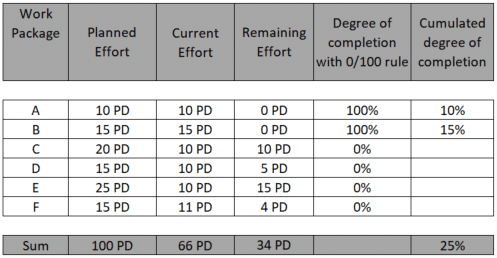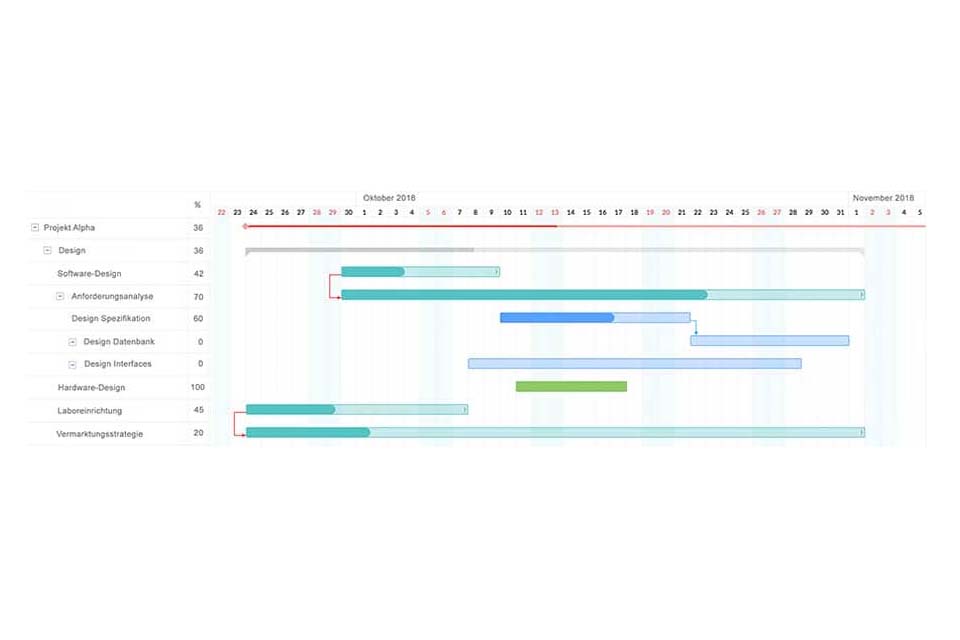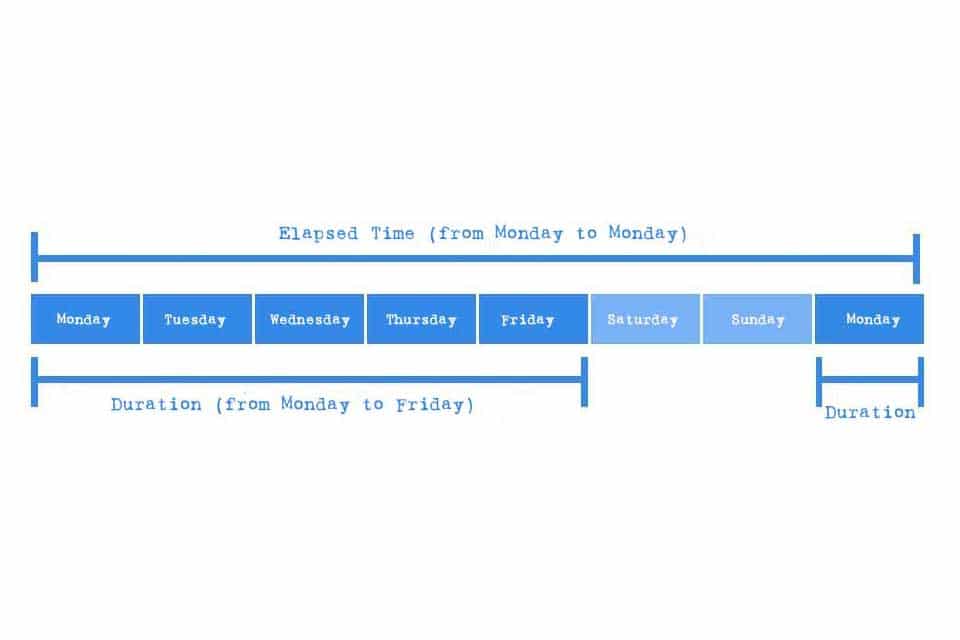What is the 0/100 Rule?
Smartpedia: The 0/100 rule helps to determine the degree of completion of activities. Before acceptance the value is 0, after acceptance it is 100.
0/100 method – determine the degree of progress conservatively
The 0/100 rule is used to valuate work packages, operations or projects with regard to their percentage of completion. DIN 69901-5¹ defines project progress as the comparison of two statuses in a project, whereby the planned goals are compared with the respective situation.
The 0/100 rule prevents the estimation of the percentage of completion from making too positive a statement about the progress of the project. As long as a process is not successfully completed, the progress is evaluated with 0. Only after successful acceptance of performance are 100 % of the planned costs of the activity assigned to the earned value.
The 0/100 rule is therefore also considered a conservative and reliable method for evaluating project progress. In addition to the 0/100 rule, the 20/80 rule or the 50/50 rule are also used; the target/actual comparisons and possible project forecasts vary accordingly.
Example for the 0/100 rule
Here is an example of the 0/100 rule:
Some points can be derived from the example:
- The stage of completion of the project is only 25 %, even though 2/3 of the planned work has already been completed. The 0/100 rule is therefore “conservative and reliable” on the one hand, and pessimistic in its assessment of progress on the other.
- As long as an activity is not completed, no progress is documented. From another point of view, this means that the presentation of progress and actual progress only coincide before and after the start of an activity. During the processing of an activity – and thus the longest time – however, the actual progress and the calculation of progress do not coincide. With all “certainty” this can also be seen as a weak point of the 0/100 rule.
Impulse to discuss
How effective can project control be if the key figures of the 0/100 rule only rarely reflect the actual degree of completion?
[1] DIN 69901
If you like the article or would like to discuss it, please feel free to share it in your network. And if you have any comments, please do not hesitate to send us a message.
Here you will find additional information from our Smartpedia section:



